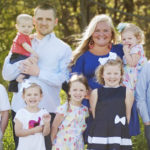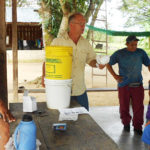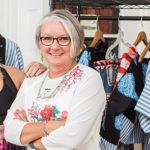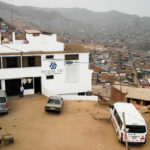In spite of a broken economy and a country under corrupt martial law, God continues to protect his people in Venezuela, said a grown-up Southern Baptist missionary kid who trains indigenous missionaries at a Baptist camp there.

“God has placed a supernatural protection around us when we are in Venezuela,” Paul Lozuk said.
In many respects, Lozuk barely recognizes the country where he grew to young adulthood. His parents served about 25 years in Venezuela with what was then known as the Southern Baptist Foreign Mission Board.
“The country is in shambles. In many ways, it’s been relegated back to the Stone Age,” Lozuk said, reflecting on current conditions in Venezuela. “Monetary systems are broken down, and it’s leading to anarchy, chaos and crime. The people are desperate.”
Lozuk and his wife, Delia, moved to Venezuela in 2010 when they were in their fifties after several years of resisting what they now believe was God’s call to missions service. For more than four years, they worked with Baptist churches and associations in 13 Venezuelan states, primarily focused on street evangelism until they felt “a different call” from God.
Training Venezuelans to reach Venezuela

In 2015, they brought 11 indigenous missionaries from Venezuela to a Christian ranch near Seguin, where Texas Baptist Men volunteers taught them how to drill water wells, as well as providing instruction in sanitation, hygiene and water purification techniques. While they were in Texas, the Venezuelans also learned agricultural techniques applicable to their own country.
Before long, Venezuelan Baptists invited the Lozuks and their team to begin training others at a Baptist camp near Valencia, in northern Venezuela.
“In 2018, they gave us the use of about 50 acres at the camp for 30 years and asked us to develop and expand a permanent training center,” Lozuk said. “To date, we’ve trained over 150 young Venezuelan missionaries in the production of food through organic gardening, farming, beekeeping, animal husbandry, plus hygiene, food management, food preservation and fermentation—and advanced studies in Bible doctrine, evangelism and church planting.
“This training gives these young missionaries an additional tool to provide food, clean water and solutions to themselves and to those they are seeking to rescue. God has blessed this work.”
Sign up for our weekly edition and get all our headlines in your inbox on Thursdays
However, current conditions make the missionaries’ work challenging, particularly in terms of traveling from one Venezuelan state to another.
“The country is basically under a type of martial law,” Lozuk said. “Travel within the country by land involves facing continuous military check points. These young soldiers basically can rob you, detain you and inconvenience you without any restraints. Parts of the country are lawless and ruled by groups of thugs.”
God protecting his people
Even so, Lozuk testified to God’s protection during intimidating circumstances.

“We have passed through many difficult situations and seen how the Lord has simply blinded the eyes of the soldiers and others, and we have gone through unseen,” he said.
“God has given us special favor in Venezuela. Though we stand out as Americans and are easily recognized, we have never been attacked or selected for bad treatment.”
An economic and financial meltdown in Venezuela that has created hyperinflation also creates its own set of challenges, he added. Forbes reported Venezuela’s annual inflation rate reached 80,000 percent at the end of 2018.
“The government has taken over many banks. They place limits on the amount of money you can deposit, withdraw and transfer. They have created laws that limit the number of days that banks and businesses can work, so it is difficult to do business. Cash is difficult to come by and since the Internet does not work most of the time, debit card and credit card purchases are limited,” Lozuk said.
Because stores refuse to sell products at the government-prescribed price, which generally is a fraction of their actual cost, consumers are forced to deal with bachaqueros—black market dealers who charge three or four times what products are worth, he explained.
Furthermore, travel restrictions make it impossible for Christians from outside the country to bring tools and equipment that would be helpful to his ministry.
Battle between darkness and light
But Lozuk views the physical calamity in Venezuela as the direct result of spiritual oppression.

“Darkness and light cannot exist together,” he said, noting the prevalence of occult practices in the country. “The forces of darkness are keeping people from receiving the truth, from getting fed when they are hungry, from getting the medicine they need. People are dying of simple infections. There is no way God is happy when people are having to endure that kind of suffering. It’s demonic.”
Still, Lozuk gives thanks for what God has been able to accomplish through his missionary team.
“In the middle of much chaos, anarchy and lawlessness, the Lord has used our team of instructors, the students we have trained and ourselves to lead many to Christ over the last eight years,” he said.
“Pray that God will shed light into Venezuela that will push out the darkness.”














We seek to connect God’s story and God’s people around the world. To learn more about God’s story, click here.
Send comments and feedback to Eric Black, our editor. For comments to be published, please specify “letter to the editor.” Maximum length for publication is 300 words.